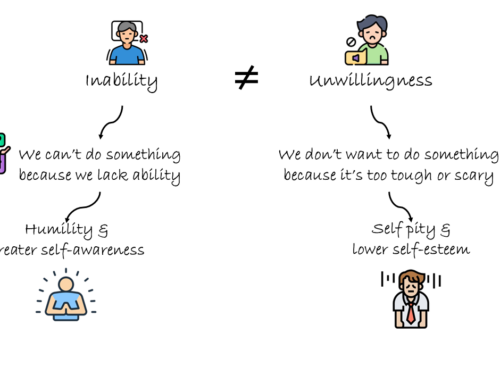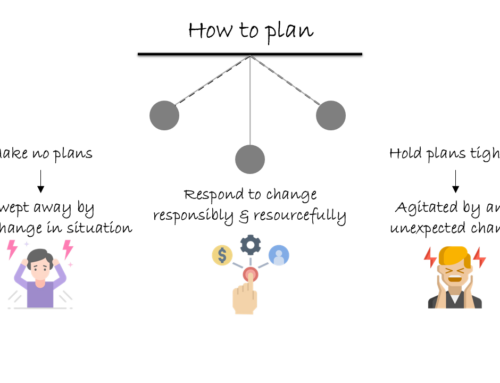Children who have neglectful parents may find that their parents’ give them attention only when they cry. Damaged by such parental neglect, they may develop a distorted self-conception wherein they feel attention-worthy only when they are unhappy.
Such children sometimes become hypochondriacs. Though physically fit, they are mentally sick, laboring under the unhealthy belief that a show of sickness is their only gateway to attention.
Even if we don’t exhibit such extremes, we too may seek attention by being unhappy. But meeting our needs thus is unhealthy.
Why?
Because first, it reinforces our misbelief about how we should seek attention and thereby happiness. Thus, to become happy, we perversely adopt unhappiness as our default state of mind.
Second, when our unhappiness becomes habitual, people stop paying attention. Thereafter, to gain their attention, we act all the more miserable, maybe even suicidal. Thus, we slide further and further down the slippery slope of self-inflicted misery. The Bhagavad-gita (18.35) mentions people who are perpetually morose, pessimistic, lethargic – they have determination in the mode of ignorance. They hold on to things which make them miserable.
Third and most important, our obsession with unhappiness as the means to attention blinds us to better ways of earning attention: through contribution and reciprocation. We all have some abilities, some resources, some things going right for us. By properly using whatever we have, we can make constructive contributions, relish meaningful reciprocations, and therein find healthy self-affirmation.
Ultimately, our need for attention and affection can be best fulfilled by Krishna, our indwelling Lord who loves us always, whatever our position or disposition. When we practice bhakti-yoga and become absorbed in remembering and serving him, we find spiritual satisfaction. Thereby, we can persevere in a purposeful life of devotional contribution, without being emotionally dependent on the world’s attention.
To know more about this verse, please click on the image
Explanation of article:
Podcast:






HK prabhuji. It’s a fact that most of such dysfunctional behaviour (like self- inflicted misery as you mentioned) is unknowingly imbibed in our growing-up years and prove to be blockade to growth. Through invoking Gita’ teachings, we can be aware of such behaviour and get rid of it. Thanks for enlightenment, prabhuji
Yes, Gita wisdom helps us overcome our conditionings, both from the previous life and this life’s upbringing.
A KRISHNA BHAKTA will never be unhappy